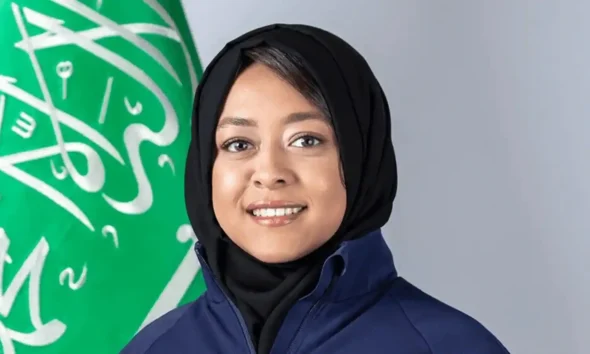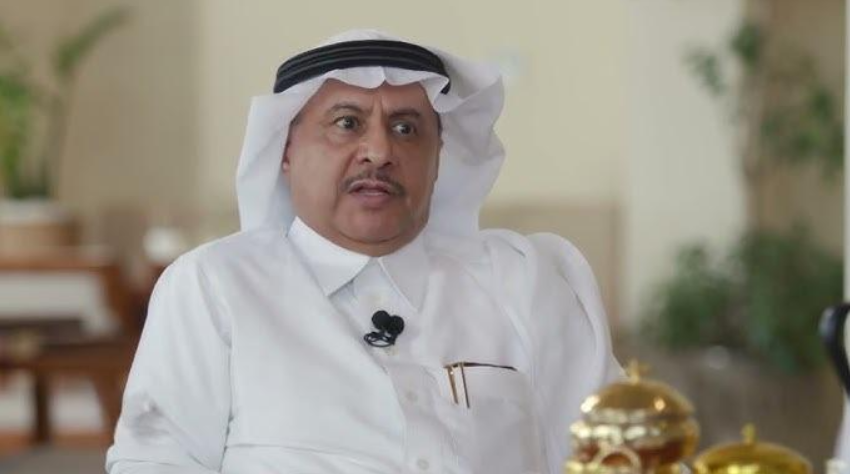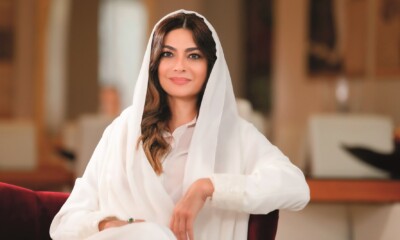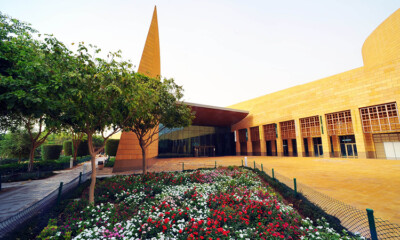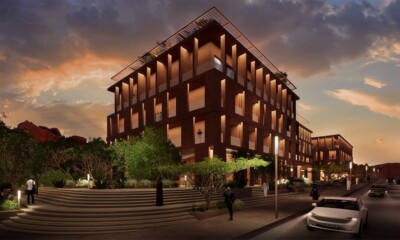Home » Saudi Arabia » Abdullah Al-Faify, a Former Member of the Shura Council: Poetry is Regaining its Stature, and the Kingdom is Keen to Fight Racism
Interviews
Abdullah Al-Faify, a Former Member of the Shura Council: Poetry is Regaining its Stature, and the Kingdom is Keen to Fight Racism
Published
1 day agoon
By
Huda Az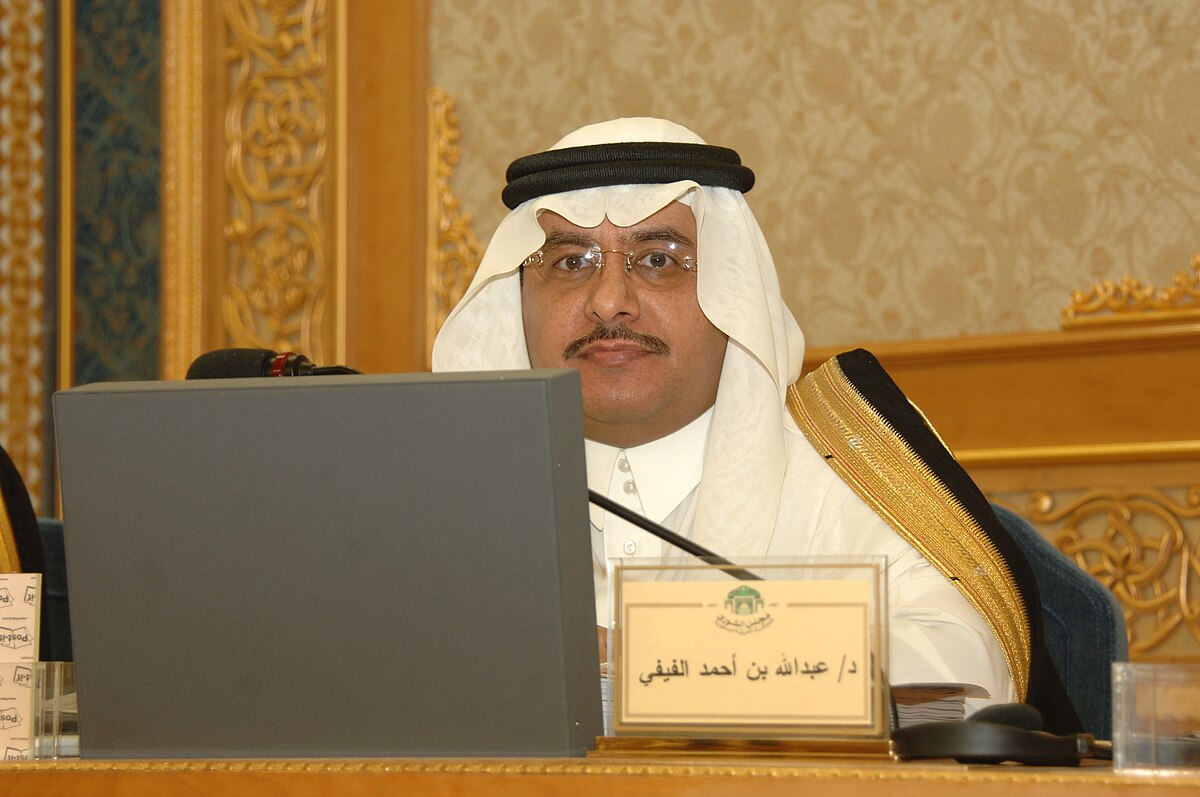
In the fields of philosophy, literature, and culture, Professor Abdullah bin Ahmed Al-Faify is a highly renowned individual. An accomplished poet and well-known Saudi politician, he is a professional who devotes himself to matters about his homeland and its identity.
According to him, politics and culture are intertwined, and their functions in cognition and service interact. He thinks the novel’s supremacy over poetry is a myth and an illusion, and that the variety of poetic forms lends language beauty and richness.
During his interview with Arabisk London, Dr. Abdullah Al-Faify commended the Saudi Shura Council’s contribution to bolstering the battle against hate speech and racial discrimination. As the lines demonstrate, he also covered various subjects significant to intellectuals, politicians, and the younger generation.
Interviewed by: Mohsen Hassan
First, Dr. Abdullah Al-Faify, how do you compare the Kingdom of Saudi Arabia’s creative scene today to earlier periods?
I don’t think it’s any better than its past, which may surprise you. The conventional and expected response is: Because of the historical connection between literary and social or urban development, we are better today than we were yesterday. Literary creativity, however, follows a different logic. That would be the same response if we asked the same question regarding the state of the Arab creative scene today.
In the past, things were more plentiful, lively, bright, and aspirational. Asking the question about the entire world might elicit the same response. For what reason? Due to the numerous distractions, the complexity of modern life, and the general and specific distractions from literature. Not all creatives have stopped producing because they are getting too old. Previously teeming with contributions, the majority of newspapers and magazines have also stopped or reduced to a few paragraphs.
These scholarly discussions vanished into obscurity as the lively interaction of the 1980s and 1990s diminished. This is if we look at the creative environment from both a quantity and quality perspective. Let us comfort ourselves that quality and sobriety appear to be better than they were previously. Since it is the result of qualitative changes in education, media, and global acculturation, this is only natural if our assertion is accurate at all.
Which fundamental humanistic findings have remained most ingrained in your beliefs throughout your illustrious scholarship, writing, and political career?
Since people are not machines with preprogrammed functions, these three domains—academic, literary, and political—are fundamentally intertwined. Instead, they discover what feeds particular fields from one another in the diversity of life and labour. Similar to my disbelief in the humanities’ sterile specialisation myth, I also oppose narrowing one’s knowledge or practice to the exclusion of others.
During my time on the Shura Council, I made most of my contributions, both creative and scientific. This is because the notion that one should devote oneself to research or creativity is a hypothesis that draws a comparison between the humanities and fields that are solely scientific. The distinction lies in the fact that the variety of perspectives and stances within the humanities field contributes to enrichment rather than impediment, devaluation, or reinforcement.
Dr. Abdullah Al-Faify, how far can poetic production be used as a soft power to express the local environment? Have the poets of the Kingdom been successful in such an endeavour?
It’s common knowledge that poetry has served a similar purpose in our Arab history as the media does today. As a result, poetic creation embodies what is sometimes referred to as “soft power,” conveying the environment, society, culture, civilisation, and values. Poetry is therefore deserving of the title “the Diwan of the Arabs,” which refers to a chronicle of Arab history, culture, values, and exploits. However, contemporary media have taken over this role in the current era, almost eradicating this archaic poetic function or even eradicating poetry. The Kingdom’s predicament is identical to that of the Arab world or the rest of the world.
So, even in cultures that have a long history of objective literary genres, the transition of poetry from objectivity to subjectivity and from expressing societal and life-related concerns to lyricism is not without explanation. Since its inception, Arabic poetry has been shifting towards subjective lyricism. Thus, until literary prose took on this role in the modern era, the epic, the poetic drama, narrative poetry, didactic poetry, and other genres that were once the focus of poetic production—since the Greeks and before them—were absent.
But can a use of poetry like this be successful despite the competition from all these modern and contemporary methods?
Creating poetry is definitely a soft power, even though contemporary strategies that use social media to advertise them, share striking images, and facilitate direct communication have eclipsed it. But in what way?
Poetry, despite its timeless nature, is not easily translated or used for any other purpose. Its ability to simplify meanings and adapt to current events makes it unaffected by time. It defies translation and seeks a unique reader to extract its unique flavour. Therefore, poetry cannot be used to further any ideology or environmental cause, as it would lose its poetic quality.
Prose literature is better suited for defensive purposes and utilitarian use in literary production, as complete freedom is essential for literature, particularly poetry, to fulfil its purpose, and this can only be achieved through discerning critical readers.
Therefore, whether comparing Arabic or non-Arabic literature, it is incorrect to expect literature—and poetry in specific—to embody soft power in the sense of the modern media. Poetry has its language, which is even more specific than literature. It is inappropriate to use terms like “soft power,” as used in the modern sense, or “non-soft power,” as used in another sense, to describe literature because of the unique character of literary discourse!
As far as I know, literature has never been used as a tool of “soft power” anywhere in the world, specifically in the sense that it is used, for the reasons I have mentioned. This is true since American political scholar Joseph Samuel Nye first used the term in 1990. Literature can have internal soft power, upholding morals, fostering harmony, and bolstering social harmony, but due to its unique purpose and nature, this can only be achieved indirectly and slowly.
What did your personal experience, Dr. Abdullah Al-Faify, on the Saudi Shura Council’s Cultural and Media Affairs Committee reveal about the clash of politics and culture?
I had the privilege of serving on the Shura Council’s Cultural and Media Affairs Committee, which later became its chair. The purpose of this committee was to discuss matters related to the media and cultural industries. However, I was a member of the Council’s Youth, Family, and Social Affairs. In my opinion, if we look at politics from a cultural perspective, which has to do with the issues of life, society, and humanity, then the relationship between politics and culture is one of identification rather than conflict.
The reason for this is that politics is, in this sense, entwined with people’s public lives, diverse pursuits, opinions, and visions. The Ministry of Culture now serves as the independent administrative body for culture, which was previously synonymous with the media in a single body. This is just one of the projects and recommendations we worked on while on that committee. Along with other aspirations, these include the creation of a World Academy for the Arabic Language in the Kingdom.
While Dr. Abdullah Al-Faify was a member of the Shura Council, the Council took a leading position in addressing the prevalence of hatred and discrimination in Saudi society. Tell us about this role’s history and whether its beneficial effects have persisted to this day.
The bylaws of the Council, which permit members to suggest new draft regulations or changes to current rules, served as the foundation for this. “Anti-Discrimination and Hatred Regulation,” a new draft regulation proposal, has 29 articles spread across four chapters. With the help of several other members, I prepared it, and they agreed to it. This results from the Kingdom’s strong emphasis on the problem of non-racial discrimination and its efforts to stop any actions that involve racism, discrimination, the spread of sectarianism, hatred, fanaticism, social unrest, or the mistreatment of people or groups.
Yet, a system that would make racism and hatred illegal—for instance, by outlawing the establishment of racist organisations or those that encourage racial discrimination—and punish those who fund racist endeavours or disseminate hateful publications or materials was still a dire necessity. So, this system aimed to uphold social harmony, guarantee the equitable implementation of laws, criminalise actions that compromise these two noble objectives, and penalise behaviours that cause conflict, division, name-calling, and strife.
In what ways did this project address questions of intellectual freedom and originality concerning epistemological perspectives on racism, hatred, and discrimination?
This project stipulated that “the rules of this system do not apply to intellectual debates based on the needs of natural human diversity, documented epistemological approaches, or purposeful scientific criticism. Neither do they apply to things that fall under the regulations’ guarantees of the freedom of constructive opinion and the expression of cultural viewpoints, so long as they do not seek to offend, undermine, or incite conflict.”
Thus, the following core ideas served as the foundation for the project: First, the principles of Islam, which advocate for the spread of equality and tolerance in society. Second, highlighting the fundamentals of society and national values. Third, protecting the gains made by the people and thwarting any action that would jeopardise them.
Accordingly, the project’s goals were to combat hate and extremism, prevent attacks on religious sites, prevent insults to sacred sites, and prevent the destruction of historical symbols that form cultural identity. It also aimed to promote values that encourage harmony, rapprochement, cooperation, and respect for others. Additionally, it sought to safeguard the social fabric against the dangers of discrimination against individuals and groups in terms of rights and responsibilities, whether based on tribe, ethnicity, region, sect, denomination, or intellectual or political classifications.
Moreover, it sought to safeguard against the negative effects of hate speech and intolerance, which endanger social harmony as well as human and national unity. Additionally, it sought to counter the terrorism and extremism tendencies that jeopardise peace and security in Arab and Islamic societies. Years ago, the Council authorised the study of this regulatory proposal, and we are still anticipating its prompt implementation to ensure it doesn’t get lost.
Poetry has always been at the forefront of your interests, despite your varied literary, scientific, and cultural accomplishments. What’s that secret, Dr. Abdullah Al-Faify?
The fact that poetry has always been at the forefront of my skills—or rather, interests—since I was a young child is the only explanation. So, it is not the result of a study or specialisation. Instead, fathers and maternal uncles both have a somewhat inherited propensity for it:
Were it not for love, no letters would have been written… nor would the drawings or ruins have been asked.
Nor would the nights have called out for my blood… As if I were a guest above a tempest.
Nor would they have said, as my mounts yearn… And the time for packing up and departure has approached:
With anxiety, death is my saddle, and our path guide is bored!
Why, in your opinion, does the West celebrate poetry the way it celebrates the novel, whereas the Arab world exhibits a literary conflict between the genres?
Poetry is the lifeblood of human language, and its contribution to humanitarian causes is the restoration of humanity. My poem “Eyes of Poetry,” which is part of the collection “Fayfa,” which the Damascus-based Arab Writers Union published in 2005, provides a verse response to this query. It states in the first line:
The rumourmongers are spreading rumours that a calamity has befallen the birds of classical poetry.
“Folkloric” has become a mood… So don’t pay attention to this frivolous idea!
How shameful are the claims of the ignorant: they stare as they gaze at the slopes!
Regarding the conflict, it seems to be a fake. People who reject poetry are frequently powerless, grabbing whatever is available, and everyone can fulfil their purpose. However, decades ago, this aversion was more common. In fact, even people who had previously been against Arabic poetry are now showing a discernible interest in it again, especially in the context of its authentic system.
In any event, I am not in favour of limiting myself to just one form. Each style has its audience and connoisseurs, and diversity is essential enrichment. However, ignoring the heritage, manipulating terminology, and excluding everything different—whether ancient, modern, or of any kind—all because one does not understand it, is a serious civilisational error.
Rather than cultivating it, we either abandon the first Arab literary genre and declare that “the novel is the contemporary Arab collection of poetry,” which is only a fleeting illusion, or we leap over it to import something ready-made, which seems easier to assemble and less burdensome for those who love poetry and lights.
To what degree does Dr. Abdullah Al-Faify find the growth of poetic maturity among Arab poets satisfactory? What about the KSA’s experience with modernist poetry?
As I say, the Arab world has seen more sophisticated poetic experiences since the turn of the twenty-first century. As I outlined in my 2005 book “The Modernity of the Poetic Text,” these advancements suggest opportunities for the future unencumbered by the traps of the transitional phases that modern poetry experienced in the previous century.
In the latter half of the 20th century, a conflict arose between a dominant traditionalist movement and innovations seeking innovative methods without a strong foundation for qualification. A third group stood between them, seemingly focused only on the spotlight of revolution and instant celebrity.
Then, in my critical work, I frequently addressed the changes in Saudi Arabia’s creative scene and the modernist poetic experience, as well as some experiences overseas in places like Jordan, Egypt, Iraq, Morocco, Sudan, and Syria. I emphasised the connections between these experiences and their shared tributaries.
Nevertheless, the poets’ changes were slow due to their linguistic and creative backgrounds, as well as social and cultural norms that discouraged experimentation and rejected novelty. As is the case with our Arab affairs generally, this occasionally resulted in rebellion and extremism as a response to earlier extremism.
In the first two decades of the twenty-first century, modern poetry marked the emergence of a new trend known as “authentic modernity,” modern authenticity, or post-modernism, despite its challenges. Young, talented, educated individuals are driving a new trend, fostering respect for tradition and understanding of modernisation’s obligations. This is both old and new testimony, and I continue to believe what it says. In terms of art and life together, it supports my earlier response that labour, no matter how long, will inevitably result in a child and that only the fittest will survive.
In summary, to what extent has Dr. Al-Faify’s artistic output progressed over the past five years, and what is its future trajectory?
I’ve released two poetry collections in the last five years: “Aflak (On the Station of Observation),” published by the Al-Baha Literary and Cultural Club in 2019, and “We Went Racing,” published by the Taif Literary and Cultural Club in 2021.
A scholarly book that I have authored, “The History of the Children of Israel and the Arabian Peninsula, From Mythological History to Hermeneutic Geography: Methodological Reviews of Contemporary Historical Models (with a translation of Strabo’s Description of Arabia Before Christ),” the Modern World of Books in Jordan published it in 2019.
In addition to my sixth poetry collection—which is practically a dream—soon, I hope to publish my expanded critical book on gender and genre issues, God willing, as well as another book (encyclopaedic: linguistic and cultural).
Read more: Dr. Hassan Al-Nemi: Politicians’ Choices Have Power, and so Do the Words of Intellectuals!
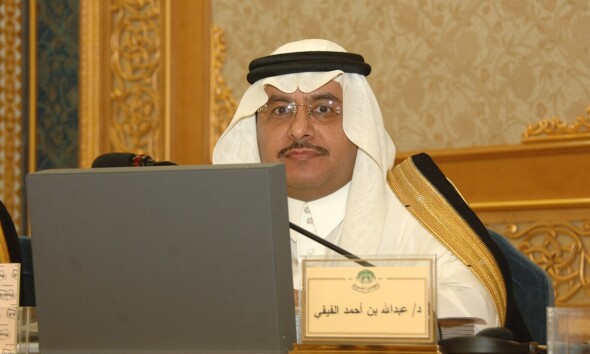
Abdullah Al-Faify, a Former Member of the Shura Council: Poetry is Regaining its Stature, and the Kingdom is Keen to Fight Racism
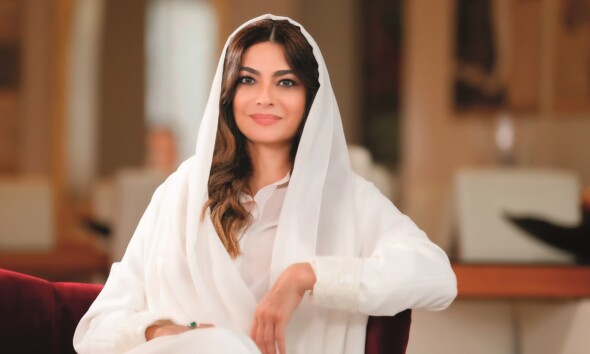
Honayda Al-Serafi has Won Fashion Capitals with Arab Touches
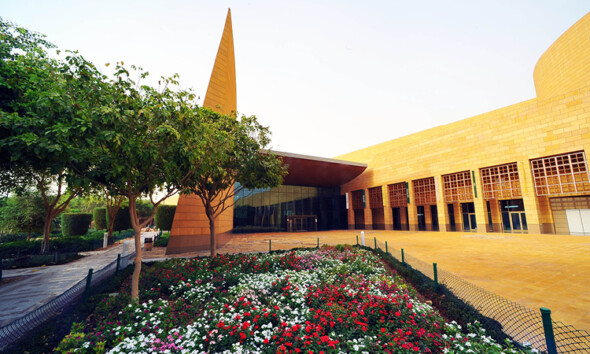
The Saudi National Museum: Preserving Culture & Celebrating Events
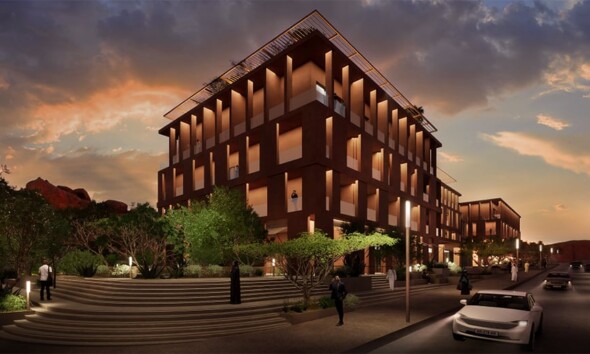
AlUla’s Numaj Hotel: A Lodging Encounter Blends Sustainability & Astronomical Heritage

The First Use of Flying Taxis to Transport Passengers & Cargo in Riyadh
